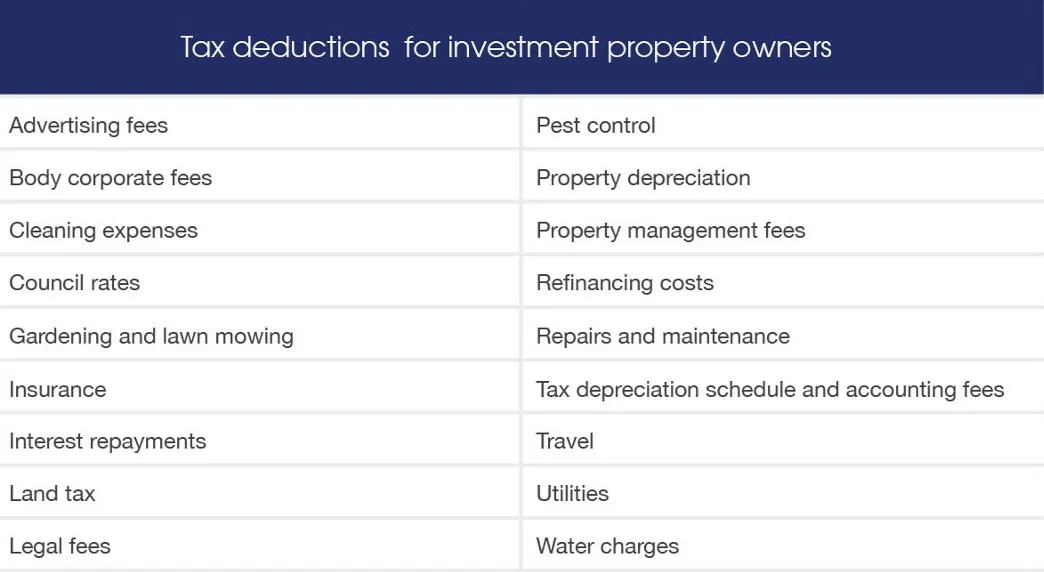How to prepare your investment property for the new financial year.
How to prepare your investment property for the new financial year, written by THE EXPATRIATE, Tax Depreciation Specialist Bradley Beer, Chief Executive Officer at BMT Tax Depreciation. We hope this blog gives you six tips to consider to gear up for the new year effectively.
At the start of the new financial year, property investors have a valuable chance to review and enhance their investment approaches. Here are the six key points you need to consider;
Know the important tax dates.
Know which deductions you can claim.
Prepay expenses.
Keep records.
Go through an accountant.
Maximise deductions with depreciation.
Know the important tax dates.
Knowing the important tax dates is essential in preparing for the new financial year.
Investors who are lodging their tax return through an accountant must lodge the previous year’s return by 15 May.
30 June marks the end of the financial year, which is the cut-off date to which investors can pay expenses and claim those costs in this year’s return.
Investors lodging their tax return through the ATO’s online MyTax portal must lodge their tax return by October 31.
2. Know which deductions you can claim.
Several deductions available to property investors can improve cash flow significantly come tax time. Understanding which deductions you’re eligible for and how to maximise them can help you reduce your taxable income and lower potential tax liabilities.
The table below outlines the deductions available to property investors.
It's important to note that expenses can only be deducted if they are directly related to an investment property.
3. Prepay expenses.
To claim costs in the same financial year, all expenses, including repairs and maintenance, interest, insurance, tax depreciation schedules, and ongoing expenses, must be paid before 30 June. Ensure that all expenses are prepaid before this date to be eligible for claiming them in the same year.
4. Keep records.
One of the most important steps is to keep detailed records of all income and expenses associated with the property. Records should include rental income, mortgage payments, council and land taxes, insurance, costs of repairs and maintenance, and any other expenses related to the property.
Keeping records supports claims for deductions and will help you and your accountant prepare for the new financial year.
5. Go through an accountant.
While you can prepare your own tax return, the process can be quite complex. Therefore, it’s often advisable to seek assistance from a qualified accountant. Accountants are crucial in helping people navigate intricate tax laws and ensure that all eligible claims are maximised and accurately filed.
6. Maximise deductions with depreciation.
The ATO allows owners of income-producing properties to claim a tax deduction for the wear and tear of the property and its assets over time.
Depreciation is claimable under two categories. Capital works (Division 43) deductions are claimable on the building’s structure and permanent assets. Plant and equipment (Division 40) depreciation is claimable on easily removable or mechanical assets.
Investors wanting to maximise deductions and lower their taxable income should be claiming depreciation. Claiming depreciation allows investors to recoup some of the costs associated with owning and maintaining an investment property.
Because depreciation is the only non-cash deduction available to investors, no money must be spent to claim it.
BMT Tax Depreciation find their residential clients an average claim of almost $9,000 in the first full financial year.
To learn more about preparing for the new financial year with depreciation, call BMT on 1300 728 726 or Request a Quote.
Bradley Beer (B. Con. Mgt, AAIQS, MRICS, AVAA) is the Chief Executive Officer of BMT Tax Depreciation. Please contact 1300 728 726 or visit bmtqs.com.au for Australia-wide service.
The Expatriate always tries to make sure all information is accurate. However, when reading our website, please always consider our Disclaimer policy.



